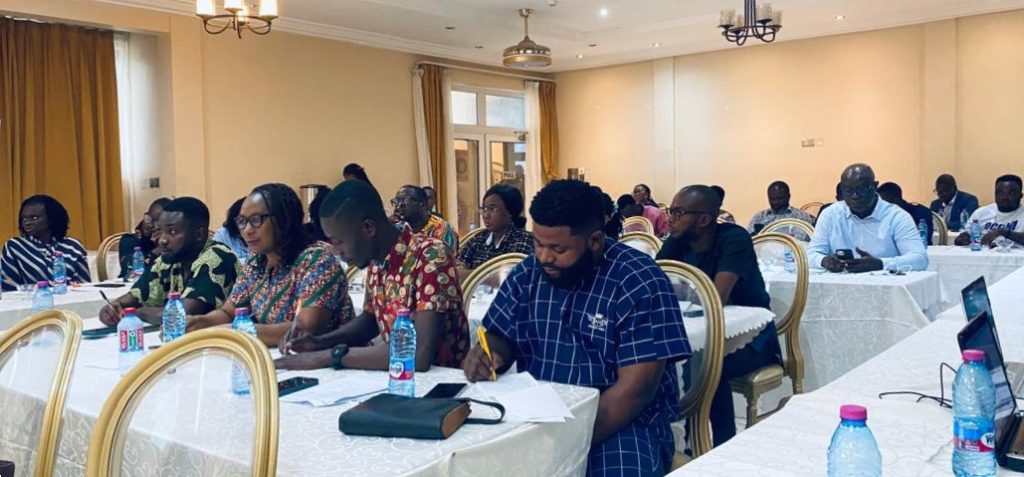By Emmanuel Gamson, GNA
Accra, June 28, GNA – Dr Paul Boateng, the Case Management Focal Person for the National Malaria Elimination Programme (NMEP), says the media has key roles to play to ensure Ghana achieves its malaria elimination objectives.
He said as key stakeholders, the media should work by raising awareness, and promoting the use of prescribed malaria preventive measures and behavioural change among the citizenry to ensure a malaria-free Ghana.
He said this when the Ghana Health Service (GHS) through the NMEP organised a two-day capacity building workshop for selected journalists to deepen their understanding on the malaria elimination activities in the country.
The workshop, held in Accra, was also aimed at strengthening collaboration among journalists and equip them with the knowledge and skills to effectively communicate malaria prevention strategies and advocate for NMEP interventions, especially in rural areas.
It was on the theme: “The Role of the Media in the Malaria Elimination.”
Dr Boateng stated that the country was making strides in controlling malaria through some strategic interventions like the distribution of long-lasting insecticide nets, indoor residual spraying and limited lavaeciding.
Others were malaria vaccination, intermittent preventive treatments, seasonal malaria chemoprevention, and case management and diagnosis treatments, among others.
However, to attain a malaria-free Ghana would require the effective collaboration among all stakeholders to advance the National Malaria Elimination Strategic Plans between 2024 and 2028, he noted.
He said: “As media practitioners, we must use our platforms to counter misinformation, report scientific advances, empower local voices, and highlight success stories so that collectively we can achieve our set goals and objectives in terms of our malaria elimination agenda.”

Dr Franklin Asiedu-Bekoe, Director of Public Health at the GHS, said malaria was still a threat to public health, “but we cannot ignore the incredible progress our country has made in saving lives and reducing the burden of this disease.”
He said the GHS and partners made considerable progress regarding malaria morbidity and mortality over the years.
He said: “The malaria testing rate has improved considerably from 38 per cent in 2012 to 98 per cent in 2023, malaria prevalence has decreased from 27.5 per cent in 2011 to 8.6 per cent in 2022, and deaths due to malaria have also reduced from 2,799 in 2012 to 146 in the year 2023.
“This consistent reduction in morbidity and mortality assures us all of the effectiveness of our interventions, as well as the hope of elimination with improved and sustained efforts.”
Dr Asiedu-Bekoe asked the media to continue raising public awareness about malaria prevention and treatment options, while encouraging the people to change their behaviour by consistently using mosquito nets, seeking early diagnosis, and sticking to treatment plans.
Dr Charity Binka, the Executive Director of African Media in Malaria Research Network (AMMREN), said the role of the media in eliminating malaria in Ghana could not be overstated and called on all to join forces to achieve the goals of the NMEP and create a future where malaria would no longer be a public health threat.
GNA